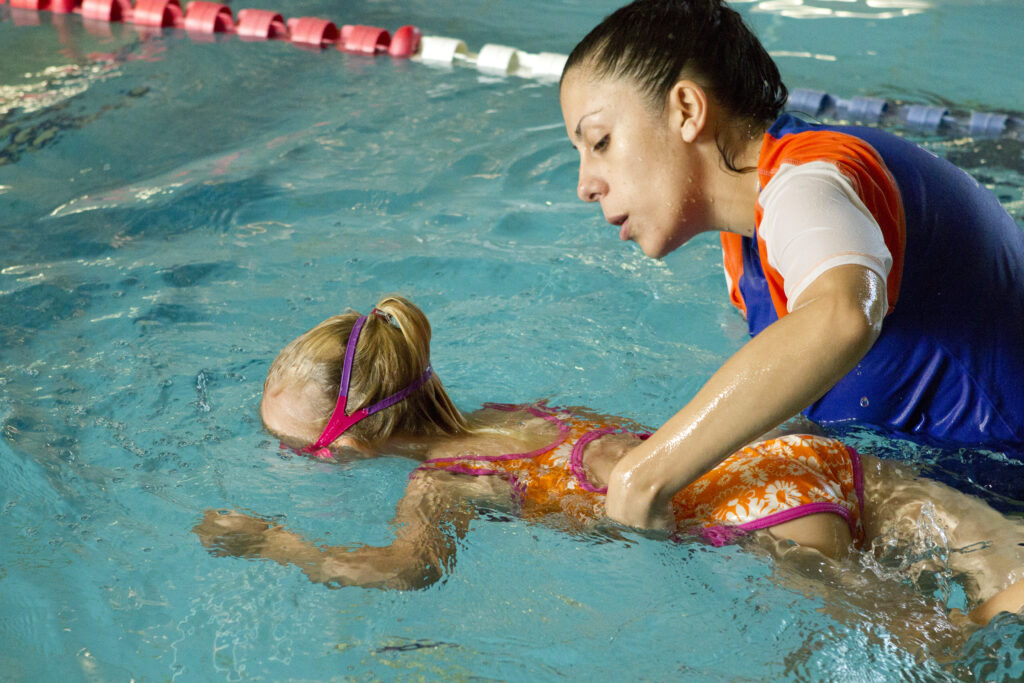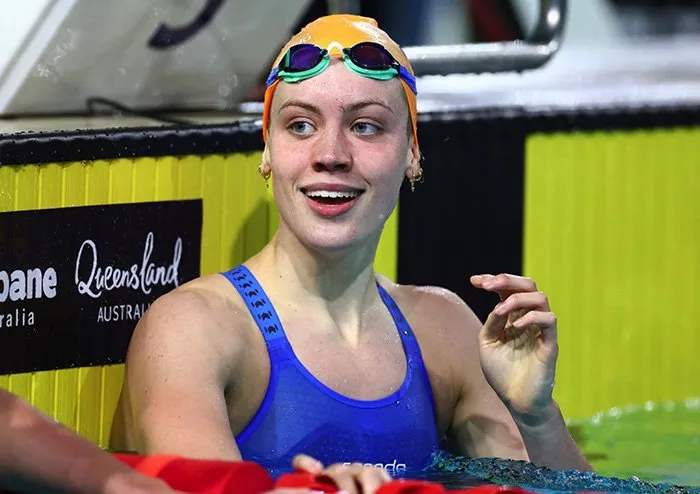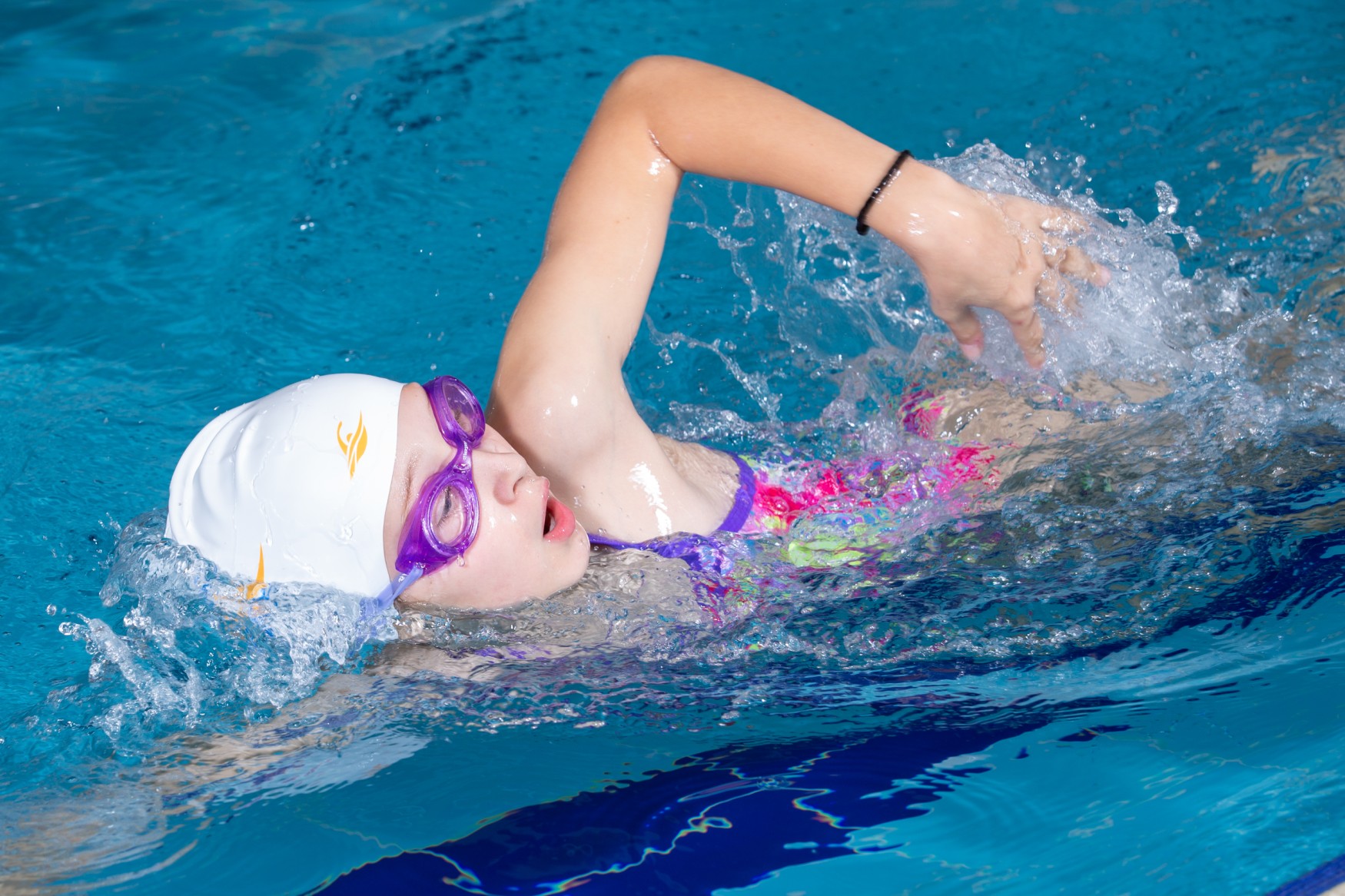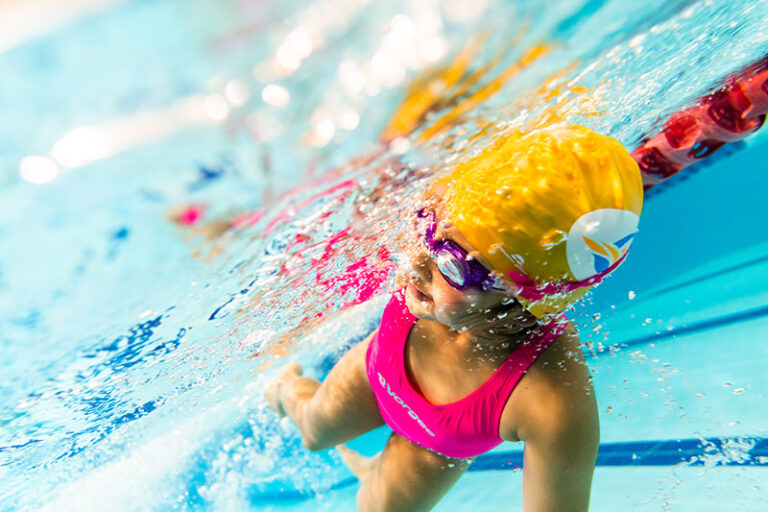
How do you find the best learn to swim lessons?
Learning to swim can save your child’s life. Learning to do it well leads to a lifetime love of the water. But how do you tell the difference between great and average swimming lessons?
Choosing where to take your child to swimming lessons is not just about finding the closest pool and a teacher. You need an expert, with a nurturing approach that emphasises safety and develops great technique.
Carlile Swimming pioneered teaching babies in Australia, opened Sydney’s first indoor learn to swim centre and has long been regarded as one of the world’s leading swim schools.
Questions to ask and what to look for in swimming lessons
Below are some questions to ask your potential swim school, based on Carlile’s 65 years leading the industry.
- Are your teachers well trained and accredited? Your teacher should be accredited by a nationally recognised organisation such as The Australian Swimming Coaches and Teachers Association. Not all swimming teachers carry a national qualification, and not all swim schools have developed their own internal training.
- What is your child protection code of conduct? Your swim school should be able to provide you with their child protection policy and ensure the right practices are always followed.
- Do you use flotation aids, such as bubbles and floaties? Tragically in Australia 84% of drownings amongst children aged 0-4 are caused by falling into water. If your child falls into water, the chances are they will not be wearing a flotation aid. It’s easy to develop a false sense of security when using flotation aids, because it appears the child’s skills are more advanced than they really are.
- How many students are in a class? The numbers should vary. Learning to swim requires more individual attention than stroke correction. A teacher’s ability to keep children engaged is just as important as the teacher to child ratio.
- When is the best time to start? As soon as possible! Babies can start as young as three months. These classes are done with a parent in the water. They are tremendous fun, a great bonding experience and help develop important safety skills. If your child is older, it’s never too late to learn the life-saving skill of swimming and enjoy the considerable developmental benefits.
- Why is good technique important? Swimming with an efficient technique means a child can swim longer without tiring. Good technique can save a life. Further, being able to swim well opens the door to a world of opportunities, from competitive swimming, to surfing, water polo, lifesaving, skiing, sailing and many more.
- Do you have Supervisors who watch lessons to ensure quality? Carlile introduced Supervisors who are experienced teachers who not only provide feedback to teachers on lesson quality but also assess children’s progress.
- Will my child be in a level for a set period time? Children should always be promoted as soon as they are ready to confidently move up.
- How far will my child swim? Further is NOT necessarily better. If a child with poor technique is swimming too far, they are building muscle memory with that poor technique. Shorter distances, with more opportunities for stroke correction and less chance to lose concentration or tire, develops better swimmers.
- When will my child have learnt to swim? Hopefully swimming will be a journey your child loves, not an event. If your child can comfortably swim 400 metres of freestyle with good, efficient technique and a balance of other strokes, then they can swim well. That opens the door to a lifetime of possibilities in and around the water.
- What are the benefits in starting swimming early? Apart from helping children be safer, the broader benefits were confirmed by a ground-breaking, four-year research study by Australia’s Griffith University. The study found children who attended regular swimming lessons improved physical, emotional, social and cognitive skills. In fact, compared to the non-swimming population, the 3 to 5 years old’s in the study were:
- 11 months ahead in verbal skills
- 6 months ahead in mathematic skills
- 2 months ahead in literacy skills
- 17 months ahead in story recall
- 20 months ahead in understanding directions
It’s little wonder Carlile believes “to swim well is an asset for life.” If you’d like your child to swim with Carlile book here.




